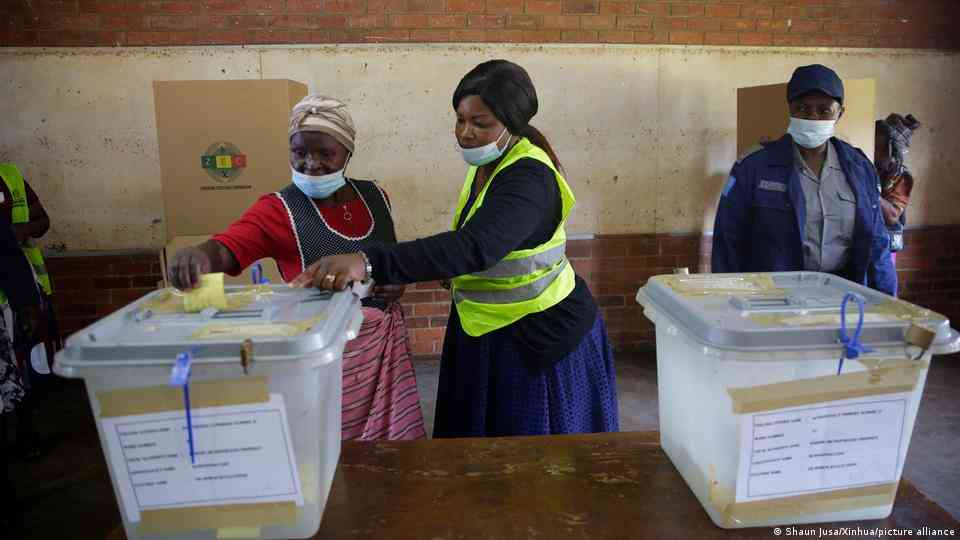
THE 2023 Zimbabwe general election serves as a pertinent case study highlighting the use of various tactics to sway public sentiment. Elections in general are a contestation of ideas as well as the battle to win the hearts and minds of the electorate. The one that is the subject of this article seemed to be that of gaining numbers.
In the realm of politics, the concept of "manufacturing consent" refers to the manipulation of public opinion through various means, that includes perception management and sentiment manipulation. These techniques are often employed during elections to shape the narrative and influence voters.
In communication studies, the concepts of the "manufacture of consent" and "perception management" are typically placed within media and propaganda analysis. These concepts explore how media organizations, governments, and other influential entities use the media to shape public opinion and gain support for their agendas. manipulate perceptions through various communication strategies.
This concept was popularised by the philosopher and social critic Noam Chomsky and in his book "Manufacturing Consent: The Political Economy of the Mass Media."
Perception management is the deliberate effort to shape or manipulate public perception of events, individuals, or organizations. It involves techniques such as framing, selective presentation of information, and the use of persuasive communication strategies to influence how people perceive and interpret information.
Both tactics are key areas of study within communication studies as they shed light on the power dynamics and influence exerted through media and communication channels. The media, consciously or unconsciously, can manipulate information, frame narratives, and set the agenda to mold public perception and maintain the existing power structures.
Sentiment manipulation involves the intentional shaping or alteration of public sentiment or emotions for a particular purpose. It can involve tactics such as spreading misinformation, amplifying certain viewpoints, or using emotional appeals to shape public sentiment in a desired direction. It typically occurs in the context of social media where is is associated with attempts to influence political discourse, public opinion, or consumer behavior.
In the digital age, social media platforms have become powerful tools for political campaigns. During the 2023 Zimbabwe general election, political parties and their supporters utilised social media to shape public perception. There was the active use of so-called “Twitter Armies” that gained notoriety for the undelared “twars” that they were frequently engaged in. They even gained epithets that betrayed their leanings, like Varakashi or Neroists.
- Letters: Is Zim ready for elections?
- Mnangagwa, Chamisa must be stopped for Zim to win
- Zec analogous to a midwife
- Elections won’t change anything as long as leaders are not held accountable
Keep Reading
However, this also opened the door for the spread of misinformation and the manipulation of sentiment. For instance, fake news articles and manipulated images were shared widely, targeting specific candidates and parties. These tactics aimed to create a negative perception of certain individuals or groups, attempts at influencing voter sentiment.
Media plays a crucial role in shaping public opinion, and during the 2023 Zimbabwe general election, biased media coverage was observed. This was highlighted in most of the election observer mission reports that were released after the plebiscite. Certain media outlets displayed blatant favouritism towards specific candidates or parties, while others engaged in character assassination and sensationalism.
By selectively highlighting or downplaying certain events, media organizations influenced public sentiment for or against particular political actors. This manipulation of information undermined the democratic process by distorting the public's understanding of the candidates and their policies. As a result, the conclusion by analystswas that this election concentrated more on personalities than on issues.
In the context of the 2023 general election, astroturfing was employed to create the illusion of widespread support for certain candidates or parties. Astroturfing refers to the creation of real or artificial movements, or online communities to manipulate public opinion.Fake social media accounts, bots, and trolls were used to amplify positive narratives and drown out dissenting voices. By artificially inflating support, perception management tactics aimed to sway undecided voters and create the bandwagon effect, ultimately influencing the outcome of the election.
Emotions play a significant role in decision-making, and political campaigns often exploit this vulnerability. During the election, emotional manipulation was witnessed through the strategic use of rhetoric and imagery. There were candidates and their campaigns that employed fear mongering, appealing to voters' anxieties and insecurities. By stoking emotions such as anger, fear, or hope, political actors sought to sway public sentiment and manufacture consent. This manipulation of emotions can cloud rational judgment and hinder the democratic process. This was the case in many rural constituencies.
This election saw another bout of voter suppression and intimidation tactics that were observed in previous elections. Some political players argue that the delimitation exercise was a case in point, where the adjustment of constituency borders offset a significant number of voters. A disturbing number of polling stations in urban constituencies opened late, even after a presidential declaration extended voting hours at selected ones.
The observance of extra-electoral outfits that conducted so-called “exit polls” within the vicinity of polling stations threw doubt on the transparency of the process in some constituencies.
On the whole, such tactics aimed to discourage certain demographics from participating in the electoral process, influencing the outcome. Instances of voter registration irregularities, intimidation of opposition supporters, and the manipulation of electoral boundaries, and double candidacy were reported. By limiting access to the ballot box through delays in the opening of polling stations, these tactics undermined the principles of democracy through exclusion.
The 2023 Zimbabwe general election serves as a stark reminder of the prevalence and impact of perception management and sentiment manipulation in the political landscape. From the exploitation of social media to biased media coverage, astroturfing, emotional manipulation, and voter suppression, these tactics were employed to shape public opinion and influence the democratic process.
In the next article, we will address these the issue of how manipulative techniques can be countered and that crucial for safeguarding the integrity of elections and ensuring a fair and transparent democratic system.
- Lenox Mhlanga is a consultant communication strategist with over 23 years’ experience in the profession. He has worked for organisations such as the World Bank Group’s International Monetary Fund (IMF). He is a respected thought-leaders and is a mentor, facilitator and trainer. He can be contacted on mobile: +263 772 400 656 or email: [email protected]











